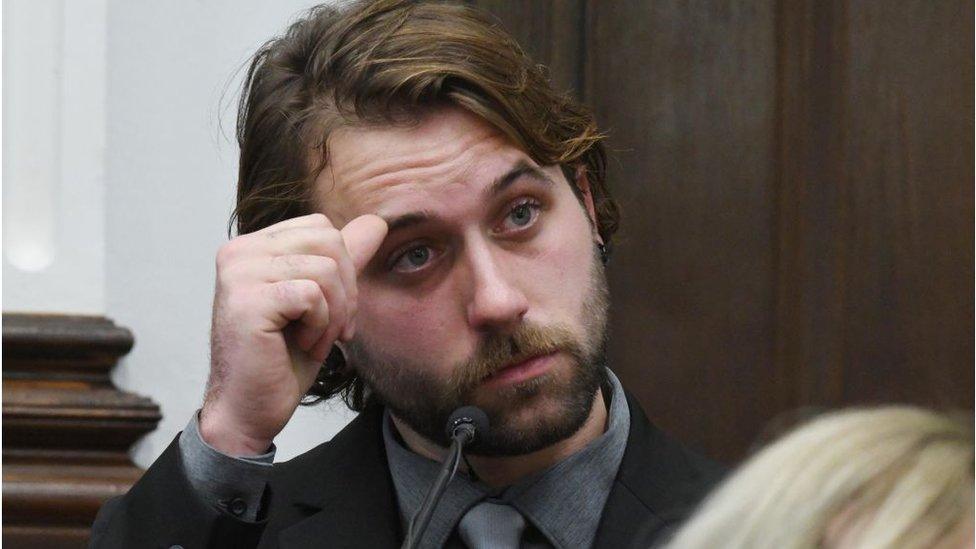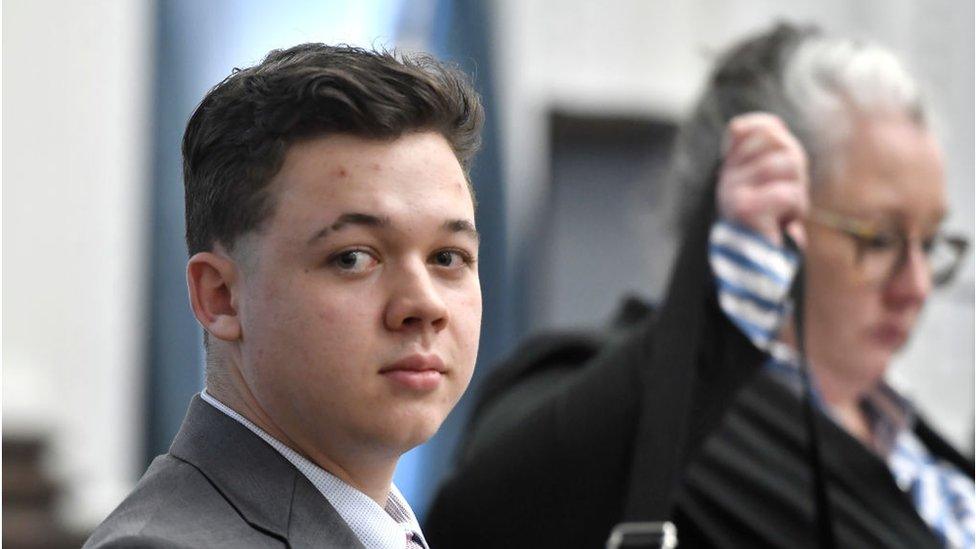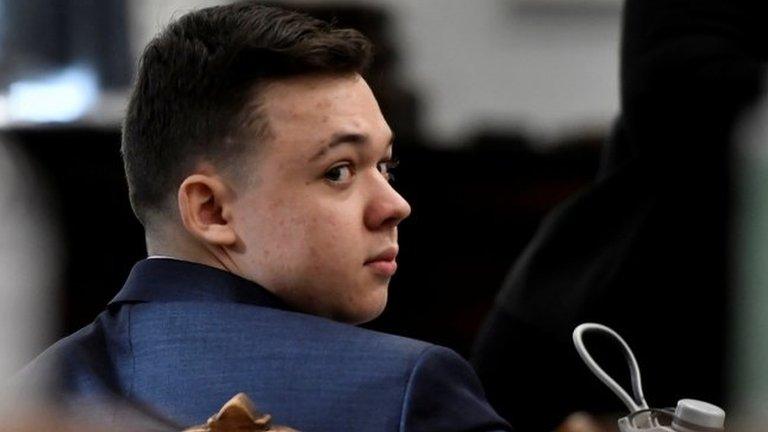Man shot by Kyle Rittenhouse says he pointed own gun amid fears for life
- Published

Mr Grosskreutz was the only man shot by Mr Rittenhouse to survive
A man who survived after being shot by a US teenager during racial justice protests in Wisconsin has told a court that he pointed his own gun, but had no intention of firing it.
Gaige Grosskreutz was the third person to be shot by Kyle Rittenhouse in the city of Kenosha on 25 August 2020.
He said he thought Mr Rittenhouse was an "active shooter" when he drew his own gun and advanced on him.
Mr Rittenhouse then opened fire, shooting him in the arm, he said.
Lawyers for Mr Rittenhouse argue that he was acting in self-defence. The 18-year-old has denied six charges, including reckless homicide, intentional homicide and recklessly endangering safety.
Riots erupted in Kenosha in August 2020 after police shot a black man. Mr Rittenhouse had travelled to the city from his home in Illinois the day before and, with a semi-automatic rifle in tow, he claimed he sought to help protect property from unrest on the streets.
Mr Grosskreutz, 27, was at the protest volunteering as a medic and said in court that he was affiliated with a social justice group called the People's Revolution Movement, according to the Milwaukee Journal Sentinel, external.
Under tense cross-examination on Monday, the defendant's lawyer, Corey Chirafisi, asked Mr Grosskreutz: "When you were standing three to five feet from him with your arms up in the air, he never fired, right?"
"Correct," Mr Grosskreutz said.
"It wasn't until you pointed your gun at him, advanced on him, with your gun, now your hands down pointed at him, that he fired, right?" Mr Chirafisi continued.
"Correct," Mr Grosskreutz said.
He said he did not mean to point the gun at Mr Rittenhouse and also denied he had been chasing after the teen, who was aged 17 at the time.
Asked what was going through his mind as he got close to Mr Rittenhouse, he said: "That I was going to die."
"I was never trying to kill the defendant. In that moment, I was trying to preserve my own life, but doing so while taking the life of another is not something I am capable or comfortable doing," he told the court.
Armed with a semi-automatic rifle, Mr Rittenhouse had just fatally shot Joseph Rosenbaum, 36, and Anthony Huber, 26, who had swung a skateboard at him. Mr Rittenhouse and the men he shot are all white.
Mr Grosskreutz was shot in the right bicep, causing severe damage to his arm. Pictures of his wound were shown to the jury, causing some to look away in discomfort, according to court reporters.
Mr Grosskreutz was the 16th witness to testify for the prosecution. Mr Rittenhouse's defence team are expected to call their own witnesses after the prosecution closes on Tuesday.
The rioting broke out in Kenosha after police shot Jacob Blake seven times in the back on 23 August 2020. A woman had called police to say Mr Blake was at her home in violation of a restraining order. Mr Blake, who had a knife, was getting into a car where his three children were seated when police opened fire. He survived but was paralysed from the waist down.
What does video evidence show?
Bystander video captures Mr Rittenhouse being chased into the car park of a used-car dealership by Mr Rosenbaum.
Moments later, unseen on video, Mr Rittenhouse fires four times and kills Mr Rosenbaum.
As he runs down the street away from the scene, Mr Rittenhouse falls and multiple people converge upon him.
Mr Huber hits Mr Rittenhouse in the head and neck with a skateboard. Mr Rittenhouse kills him with a bullet to the stomach.
Mr Grosskreutz approaches him with a pistol in hand. Mr Rittenhouse wounds him with a shot in the arm.
If convicted of the most serious charges, he could spend decades in prison.
- Published9 November 2021

- Published19 November 2021
